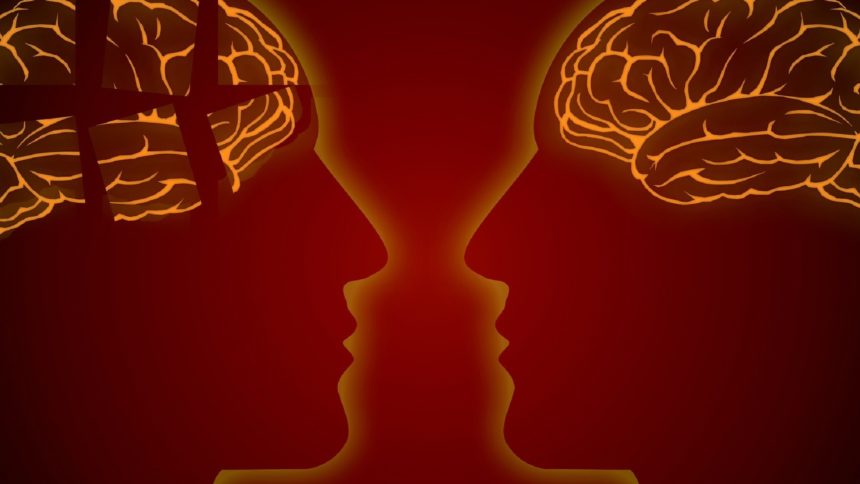Seventy percent of people with Dementia suffer from Alzheimer’s disease. This type of Dementia is therefore by far the most common. The condition is named after Alois Alzheimer, a German psychiatrist, and neuropathologist.
The disease often starts insidiously with disorders in memory. As the disease progresses, the person with Dementia loses more and more skills and ultimately becomes completely dependent on others.
Symptoms of Alzheimer’s disease
When a person is diagnosed with Alzheimer’s, he or she has usually been suffering from memory disorders for some time. It is becoming increasingly difficult for them to remember new information. They ask the same thing a few times a day and forget about appointments. Older memories are easier to access for them. These symptoms characterize the pre-diagnosis phase and the first period afterwards. When the person is still relatively young, the memory problems in the first phase sometimes do not stand out. For example, the noticeable signs are that someone is less good at maintaining the house, or is more unkempt than before.
As the disease progresses, everything they have to keep up with costs more and more trouble: following a conversation, making plans, putting things in order,
Other symptoms of Alzheimer’s are:
- Language disorders: people with dementia have more and more difficulty finding, using and understanding words (aphasia).
- Visual-spatial disorders: the demented person no longer recognizes his or her environment and is lost in places that were well known to them.
- The demented person no longer recognizes objects and sounds, he or she no longer knows what the objects are for or where the sounds come from (agnosia).
- The person suffering from Dementia can perform more and more difficult actions, such as dressing and undressing. They have difficulty with the order of the actions to achieve a result (apraxia).
- Changes in character: The demented can become suspicious, restless or aggressive. They can also become more lustless (apathy)
In the case of listlessness, they withdraw, become indifferent, lose interest in the environment and pay less attention to their personal care.
Causes of Alzheimer’s disease
In Alzheimer’s disease, accumulations of a certain protein, the so-called beta-amyloid, occur in the nerve cells of the brain. The degradation of this protein is not going well. Researchers think that by accumulation of this protein (‘plaques’) neurons and the connections between these nerve cells break down. A kind of ball of thread-like proteins (tangles) also develops in the nerve cells themselves. These make the functioning of the nerve cell impossible, causing the cell to die.
The course off the disease
Although it is different for everyone, Alzheimer’s disease is broadly divided into three stages: early, middle and late stage. Understanding these stages helps to understand the changes that occur over. Not everyone gets all stages or gets them in the same order. Sometimes stages overlap or show that phenomena change or disappear again. How the disease progresses, also has to do with the character of the patient, the emotional resilience, living conditions and any medication.
Early stage
In the early stage of Alzheimer’s disease, very small changes occur in the behavior or functioning of the person. Often it is the first to notice that the person forgets recent events. In this first stage, it is important that the patient maintains his or her independence as much as possible. It is very tempting to take everything out of your hands. Do not do that. The patient maintains self-esteem much more by continuing to do things themselves and can discover that there is still much that they can do. Support the demented, support them and reassure them when they are anxious or restless.
Someone in the early stage of Alzheimer’s can:
- Forget recent events or conversations;
- Repeat the same question or sentence;
- Be slower in understanding new things;
- Lose the thread of a story;
- Be confused
- Speak less fluently
- Have difficulty in making decisions;
- Have little interest in other people and activities.
Middle stage
In the middle stage, the changes become more obvious. The person, for example, needs more help with daily activities such as eating, bathing
Someone in the middle stage of Alzheimer’s disease can:
- Get upset, angry, aggressive or suspicious faster;
- get confused about where they are;
Run away or get lost;- Be confused about time;
- Get up at night because their sleep/wake cycle is disrupted;
- Jeopardize themselves or others through their forgetfulness – for example, by not turning off the gas from the stove;
- Behave in an unusual way, like going outside in their nightclothes;
- Have problems with perception, and in some cases have hallucinations.
Late stage
The late stage of Alzheimer’s is characterized by complete dependence on others. The memory loss is great: the person with dementia can no longer recognize familiar objects, people or places. Walking is difficult and shuffling does not work anymore. Eventually, they become bedridden and need complete care. When the demented people do not express themselves well in this stage, they can still respond to affection and a reassuring voice. They can enjoy scents, sounds, music or petting a soft pet.
A patient in the final phase of Alzheimer’s disease can:
- Have difficulty in chewing and swallowing;
- Lose a lot of weight, despite overeating;
- Become incontinent, first for urine and later also for stool;
- Gradually lose speech, although they sometimes repeat a few words or shouts from time to time;
- Get restless and be looking for something or someone;
- Become sad or aggressive, especially if they feel threatened;
- Become angry during personal care, usually because they do not understand what is asked of them.
Life expectancy for an Alzheimer’s patient can vary from three to twenty years. Research shows that the disease lasts an average of eight to ten years.

